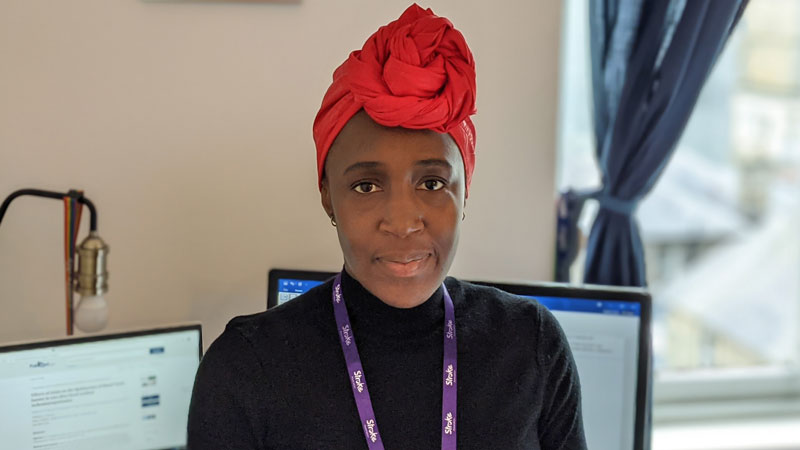Stroke research takes time and money. With coronavirus (Covid-19) locking down labs, halting face-to-face contact and hitting our funds hard, developing life-changing new treatments is more challenging than ever.
One of many researchers who's been affected is Dr Emily Sena. We're funding her work at the University of Edinburgh to make it easier to find new emergency treatments for stroke. She was three years into her five-year study when the Covid-19 pandemic struck.
'At first I thought the impact would be limited,' she says. 'The type of research my team and I are doing lends itself well to working from home with a decent laptop and internet connection. But the pandemic has had a devastating effect on almost all aspects of scientific research.'

Emily's research involves using cutting-edge computer technology and machine learning to improve the way early stage stroke research is performed and reported, so that later stage trials are planned and run more successfully. This will save time and money. It will make it easier to develop life-changing new therapies such as thrombectomy.
'Our research was paused for three months, and we had to divert some of our time and expertise to Covid-19 research to help with the pandemic,' says Emily. 'It was tough to maintain our creative thinking and innovation through lockdowns and limited social interaction.'
The funding crisis caused by the pandemic has dealt the biggest blow. With a substantial drop in income, the Stroke Association has had to halve its research budget, making it much harder for studies like Emily's to get off the ground.
'The most difficult thing is funding our research,' she says. 'People are still having great ideas, but without time and money, it's very difficult to move our research forward.'

Despite the disruptions, Emily's work continues to take us closer to breakthroughs in treatment and care. For example, the team have developed algorithms that automatically provide up-to-date information on the quality of pre-clinical laboratory trials, which can lay the foundation for successful testing of new treatments in humans.
'Results from early stage research aren't always as reliable or consistent as they should be,' she explains. 'By improving this, we can make sure that the treatments that go on to be tested in humans are the ones most likely to help stroke survivors rebuild their lives.'
Emily is optimistic about the future, if we can get stroke research back on track.
'We've seen with research into Covid-19 that when the research community comes together with enough dedicated time and money, we can find new treatments so quickly. It's possible for more stroke survivors to rebuild their lives and have better recoveries, but it requires substantial investment in research.'
Learn more
Read about Emily's work and the research we fund around the UK. You can also support us by donating what you can.
Stroke News magazine
This article is featured in the summer 2021 edition of our magazine, Stroke News. Subscribe to our future editions available in print, on audio CD, or via email.
